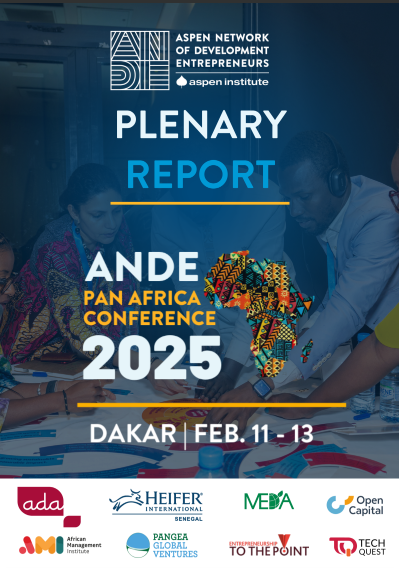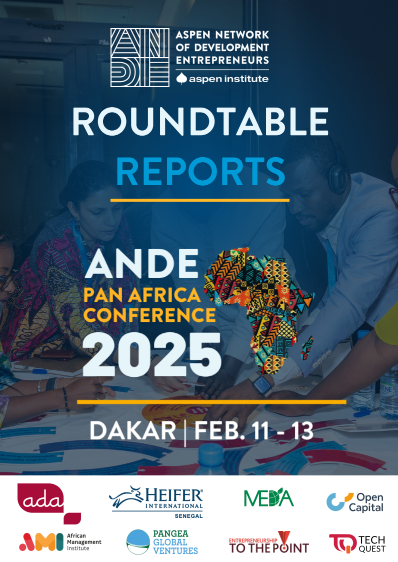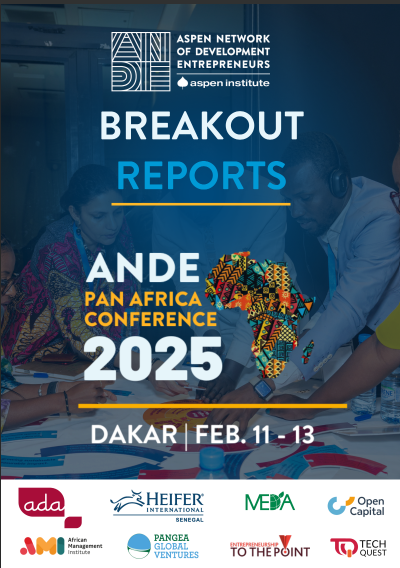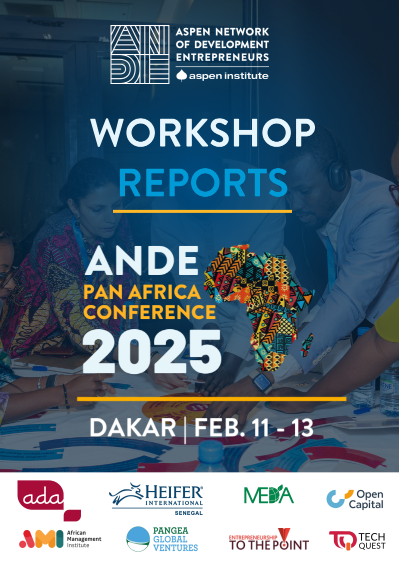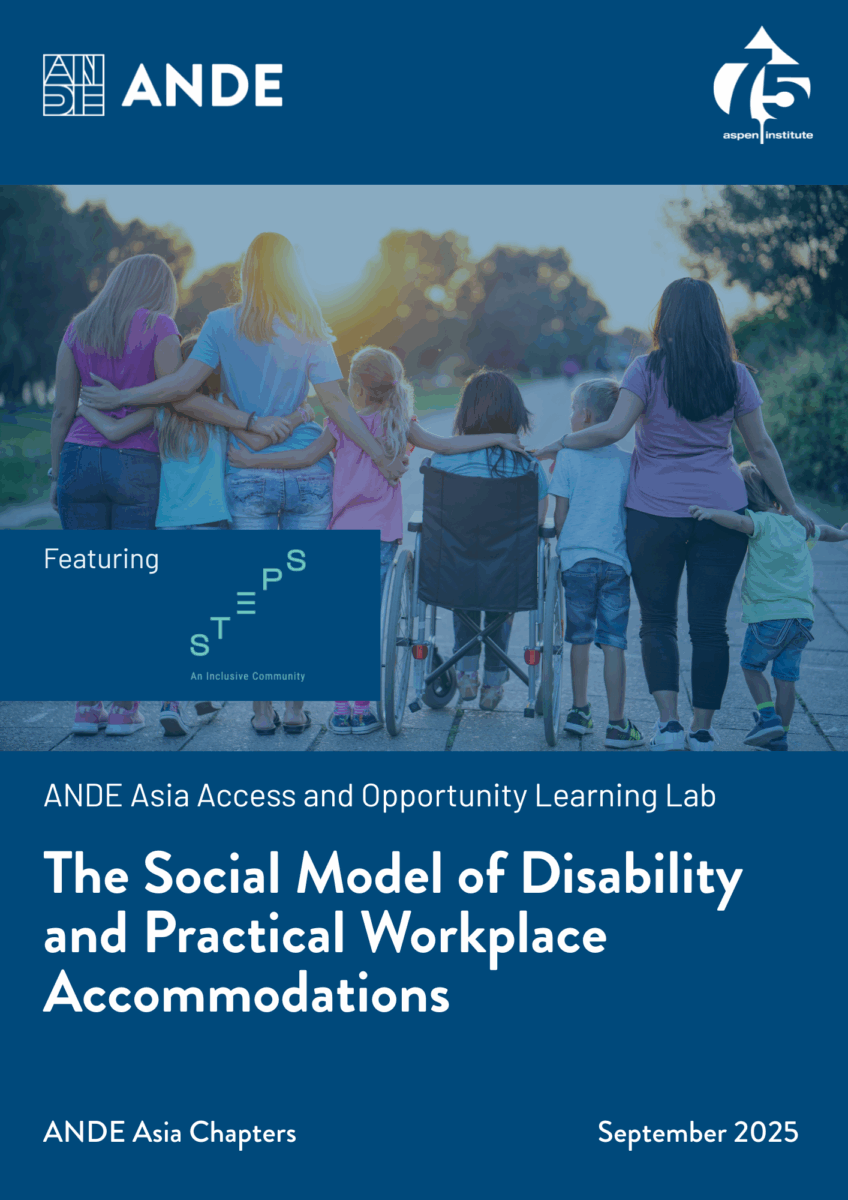 Max Simpson, Founder and CEO of Steps (Thailand), opened with a powerful reframe: disability or neurodivergence isn’t a personal limitation—it’s a societal barrier. His B Corp-certified organization proved that simple accommodations create an outsized impact. “Society creates disability,” Max emphasized, sharing how 71% of workplace accommodations cost $500 or less, with 20% costing nothing at all.
Max Simpson, Founder and CEO of Steps (Thailand), opened with a powerful reframe: disability or neurodivergence isn’t a personal limitation—it’s a societal barrier. His B Corp-certified organization proved that simple accommodations create an outsized impact. “Society creates disability,” Max emphasized, sharing how 71% of workplace accommodations cost $500 or less, with 20% costing nothing at all.
Steps’ practical solutions are elegantly simple: zone spaces by activity, provide multiple seating and lighting options, organize and label everything, and create accommodation stations that destigmatize accessibility tools. Their job-sharing approach breaks complex roles into component skills, allowing neurodivergent employees to excel in their strengths rather than struggle with mismatched requirements.
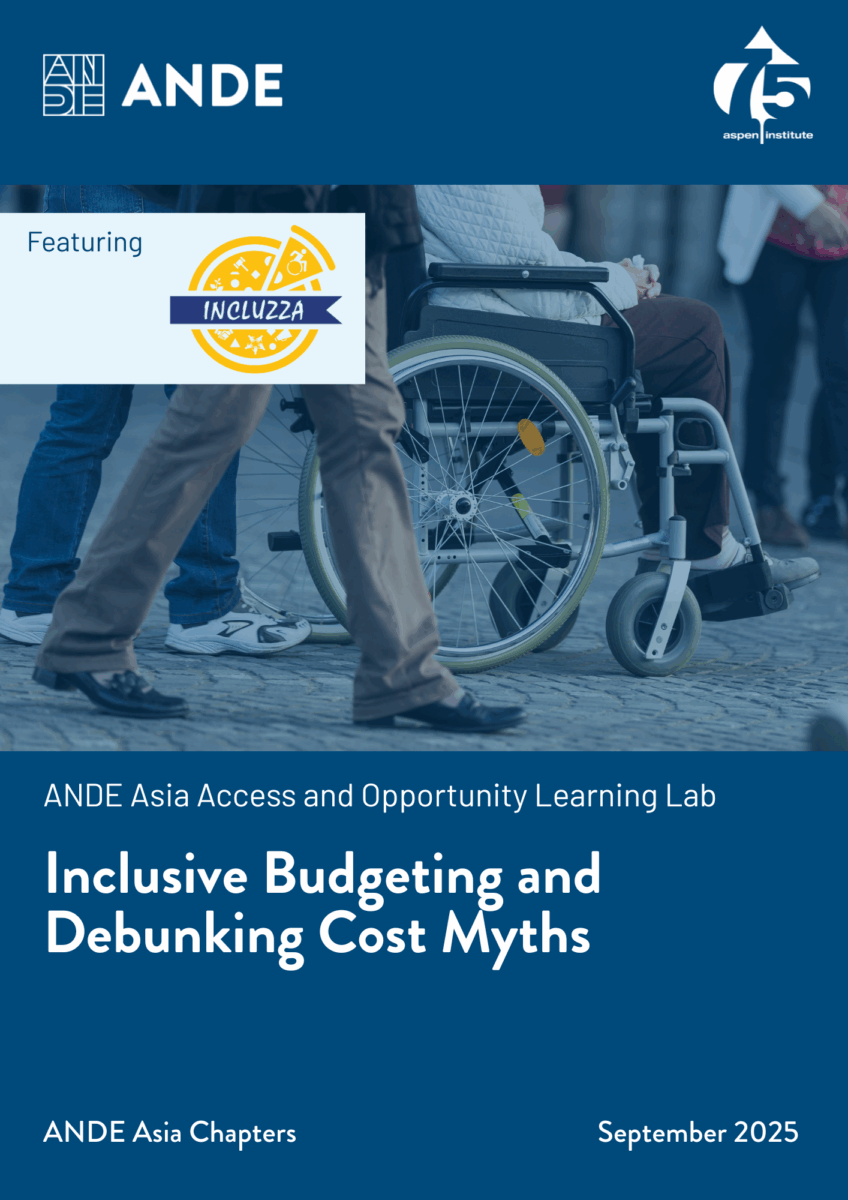
Vinaya Chinnappa, CEO of Incluzza India, tackled the budget myth head-on. Traditional top-down budgeting perpetuates exclusion, while inclusive budgeting turns financial plans into equity tools. Her approach centers on three principles: participation, transparency, and equity.
“Accessibility is expensive” is the biggest myth blocking progress, Vinaya argued. Building inclusion into initial design costs far less than retrofitting, and the hidden costs of doing nothing – lawsuits, lost talent, damaged reputation – continue mounting. Simple changes like adding alt-text to presentations take minutes but create immediate access.
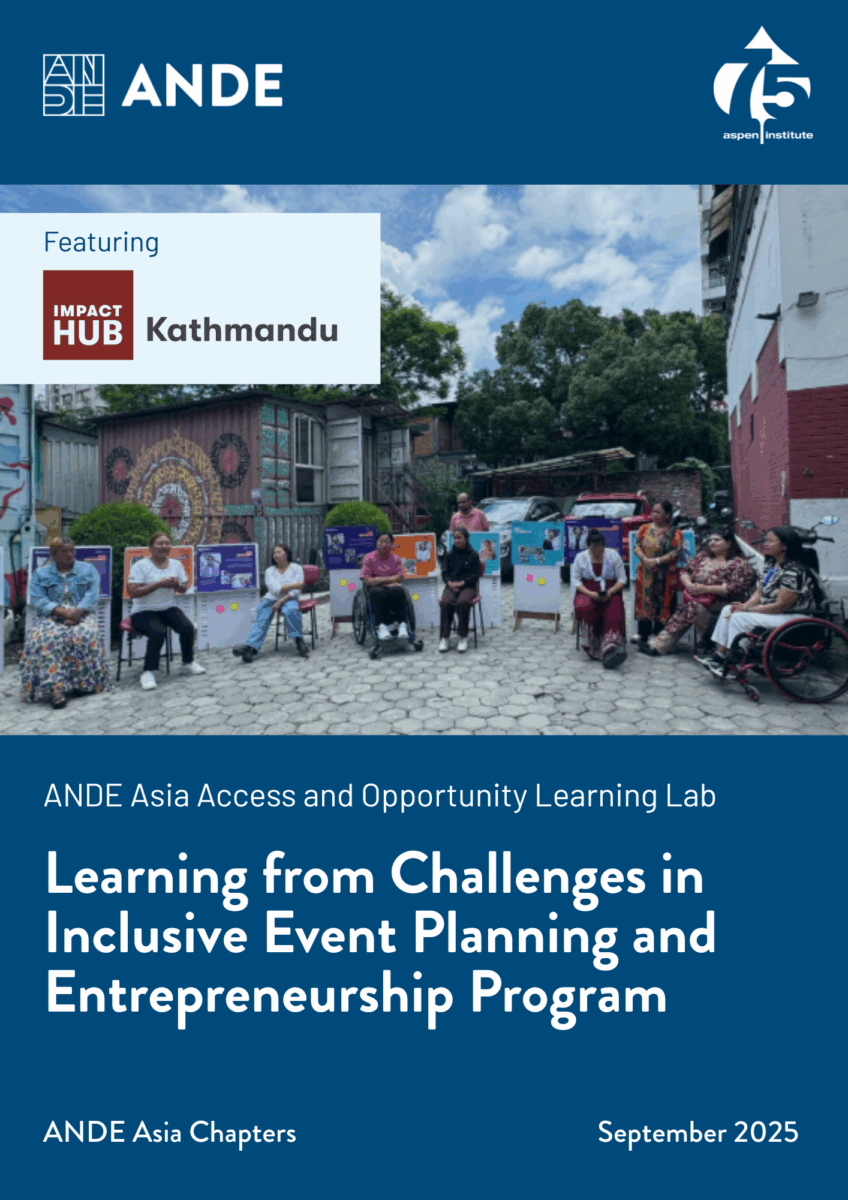 Rashi Maharjan from Impact Hub Kathmandu shared raw, honest lessons from two programs that didn’t go perfectly, and that’s exactly what made them valuable. During their Nepal Assistive Device Makeathon, venue accessibility challenges became teachable moments. “Accessibility is not an afterthought—it’s a foundation for respect,” Rashi stressed.
Rashi Maharjan from Impact Hub Kathmandu shared raw, honest lessons from two programs that didn’t go perfectly, and that’s exactly what made them valuable. During their Nepal Assistive Device Makeathon, venue accessibility challenges became teachable moments. “Accessibility is not an afterthought—it’s a foundation for respect,” Rashi stressed.
Her Building Entrepreneurial Access Model (BEAM) program revealed deeper truths: entrepreneurship often becomes a last resort for people with disabilities facing workplace discrimination, yet their innovations frequently emerge from necessity and resourcefulness. Key insight is co-creation with persons with disabilities from day one, not consultation at the end.
This report provides an overview of the 2025 Inaugural Pan Africa Conference, hosted by the Aspen Network of Development Entrepreneurs (ANDE), held in Dakar, Senegal, from February 11–13. The conference brought together stakeholders from across the continent to explore collaborative solutions to Africa’s most pressing development challenges. Central themes included collective action, the future of work and youth engagement, Pan-African collaboration, the power of storytelling for impact, and the role of creative entrepreneurship in sustainable development.
The report is structured into four sections, each highlighting a core component of the conference: plenary sessions, breakout sessions, workshops, and roundtables. Together, these sections capture the diverse insights, discussions, and outcomes that emerged throughout the event.
Women leaders have shown promise in improving business performance. A survey by the International Labour Organisation (ILO) in 2019 – covering shopkeeping, sales or trade activities, manufacturing, construction, education, financial/insurance activities, and other economic services – observed that when enterprises have a gender-inclusive business culture and policies, they experienced 63 per cent increase in business productivity and profitability. Additionally, 60 per cent enhancement in the ability to attract and retain talent and a 59 per cent improvement in creativity, innovation and openness (ILO 2019).
Furthermore, globally, funders and investors are increasingly attracted to ethical and gender-inclusive funding, recognising its dual benefits to business and society. With a gender-smart approach, you can seize the opportunity to access the pool of funding by showcasing its tangible impact on gender-related outcomes, effectively aligning its initiatives with the evolving priorities of the investment landscape. Thus, by breaking down gender barriers, you can access diverse skills and expertise, strengthening your workforce and overall competitiveness.
Vietnam’s private capital market is entering a new phase of maturity, driven by strong macro fundamentals, digital acceleration, and investor optimism.
The Vietnam Innovation and Private Capital Report 2025, co-authored by Vietnam Private Capital Agency, National Innovation Center, and BCG, provides a comprehensive look at the trends shaping venture capital and private equity across one of Southeast Asia’s most dynamic economies.
Despite a global capital slowdown, Vietnam attracted $2.3B across 141 deals in 2024, signaling sustained investor confidence. The report explores key sectors including AI, energy, healthcare and education, and the impact of national reforms such as Resolution 57 on innovation and sustainability. With rising digital adoption, a growing middle class, and targeted government support, Vietnam offers compelling opportunities for investors and business leaders seeking long-term growth in the region.
This report draws on the extensive experience of Elevar Equity, which has helped in conceiving the concept of Entrepreneurial Households (EHs). While observing underserved and under-appreciated households and working with approximately 50 companies, Elevar Equity identified the EH archetype. These households exhibit an enterprise-like economic model, combining multiple income sources into significant cash outflows, impacting both long and short-term prosperity. This report was commissioned to validate over a decade’s worth of ground up observations. The Range Analysis of CTV Estimates was specifically undertaken to allow for some sensitivity analysis, given multiple variables involved in this market sizing estimate. We expect this to evolve over time as richer data sources emerge. Irrespective of the exact numbers, the focus of this report is on the commercial readiness of this market from a business and investment standpoint. praxisga.com A distinctive feature of EHs is their substantial Household Transaction Value (HTV), which better represents their economic vitality, compared to mere income levels. This vitality is also evident in their asset ownership patterns and aspirations, particularly in their substantial investment in High Priority Goods and Services (HPGS) like education, healthcare, financial services, housing, and business activities.
The OECD Entrepreneurial Ecosystem Diagnostics report introduces a novel framework and dataset to assess and compare entrepreneurial ecosystems across all 38 OECD countries. Rather than producing a single index to rank countries, the report adopts a multi dimensional approach based on three core components: inputs, outputs, and variation. Inputs cover ten essential elements—Institutions, Culture, Networks, Infrastructure, Markets, Finance, Knowledge, Talent, Leadership, and Intermediate Services—captured through composite indexes built from about 40 indicators drawn from OECD statistics and other sources. Outputs reflect entrepreneurial performance, with indicators such as startup rates and business survival. The variation dimension measures how entrepreneurship is distributed socially and regionally, with attention to inclusivity, particularly for women and distribution of startups across regions. Each dimension is tracked at three time points to monitor ecosystem evolution and progress. Designed as a policy support tool, the report provides robust, evidence based insights to identify systemic bottlenecks and guide national strategies. It aims at facilitating informed dialogue and targeted policy action to build dynamic and balanced national entrepreneurial ecosystems. Released as a pilot, this first edition lays the foundation for future iterations, with continued refinement of data and analytical depth to enhance its relevance and impact.
The global impact landscape is evolving at an unprecedented pace, driven by the urgent need to address climate change, social inequality, and sustainable economic development. As capital markets increasingly integrate environmental, social, and governance (ESG) factors, impact investing has transitioned from a niche practice to a mainstream investment strategy. Governments, financial institutions, and private investors are aligning their capital with measurable social and environmental outcomes, fostering a more inclusive impact economy.
This report is intended to inform investors, policymakers, and ecosystem builders by providing actionable insights to accelerate capital deployment and drive systemic change. It highlights how impact investing is evolving across diverse country contexts – not only in developed markets, but also in emerging and developing economies, where local and international actors are co-creating ecosystems. Rather than ranking ecosystems or generating a scoreboard, the report aims to serve as an ecosystem learning tool and to build confidence in local actors and initiatives.
The report summarizes key insights from the “Access to Green Finance – Sustainability Stars” event, which brought together investors, corporates, Entrepreneur Support Organizations (ESOs), and Small and Growing Businesses (SGBs) to explore catalytic finance solutions in India’s green economy, particularly in waste management and circularity. The event featured a Corporate Dialogue that highlighted the need for flexible, blended capital approaches—combining equity, debt, and grants—while encouraging a shift from consumer-facing solutions to systems-level innovation. This was followed by an Investor Reverse Pitch, which offered SGBs insights into investor expectations and common red flags, while fostering stronger collaboration among capital providers. Overall, the event underscored the value of patient, strategic capital, and coordinated ecosystem support to scale impactful climate solutions.
Through an innovative project aimed at increasing the financing available to early-stage enterprises operating in the Waste Management & Circular Economy sectors, this initiative marks a significant stride toward a greener, more inclusive economy where entrepreneurs in India and Kenya can flourish and generate quality employment opportunities in the waste and circularity sector.

